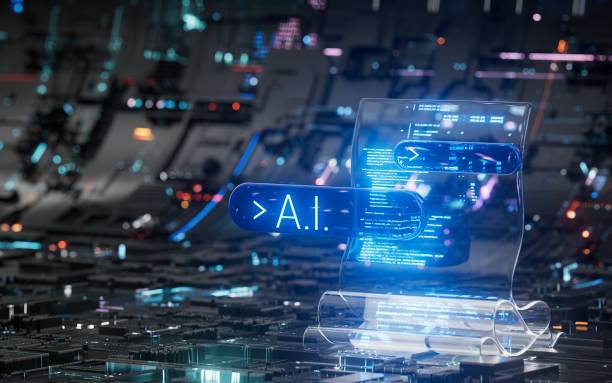
In today’s fast-evolving tech landscape, Artificial Intelligence (AI) is redefining the way we work, think, and create. Among the many sectors influenced by AI, coding and software development stand out as one of the most transformed areas.
With AI-powered tools, developers can now code faster, debug more efficiently, and even predict potential issues before they arise. At TechAfri, we understand the importance of staying ahead of the curve, and in this article, we’ll explore how AI is shaping the future of coding and development.
What Are AI-Powered Coding Tools?
AI-powered coding tools are software applications that leverage artificial intelligence to assist, automate, or enhance various aspects of software development. From generating code snippets to debugging and optimizing performance, these tools can significantly reduce the time and effort required for development. They analyze vast amounts of data, learn patterns, and apply this knowledge to deliver smarter solutions for coders and developers.
Benefits of Using AI in Development
1. Enhanced Productivity
AI-powered tools can automate repetitive tasks, such as code formatting, syntax checking, and boilerplate generation. This allows developers to focus on complex and creative problem-solving instead of mundane tasks.
2. Improved Code Quality
AI tools like static code analyzers detect errors, vulnerabilities, and inefficiencies in code. By identifying these issues early in the development cycle, developers can ensure high-quality and secure software.
3. Faster Debugging
Debugging is one of the most time-consuming aspects of coding. AI tools like automated debuggers can quickly identify the root cause of bugs, recommend fixes, and even implement them in some cases.
4. Learning Opportunities for Developers
AI coding assistants like GitHub Copilot or TabNine don’t just write code—they explain why certain code snippets are effective. This helps developers, especially beginners, learn best practices on the go.
5. Cost Efficiency
By reducing development time and minimizing errors, AI-powered tools cut down costs associated with long development cycles and post-release bug fixes.
Top AI Tools for Coding and Development
1. GitHub Copilot
Dubbed the “AI pair programmer,” GitHub Copilot uses OpenAI’s Codex to suggest entire functions, classes, and even small projects. It integrates seamlessly into popular IDEs like Visual Studio Code and IntelliJ, offering context-aware suggestions to enhance coding efficiency.
2. TabNine
TabNine is an AI-powered autocomplete tool that supports multiple languages and development environments. It learns your coding patterns over time, offering more relevant suggestions tailored to your unique coding style.
3. DeepCode
DeepCode acts as a real-time code review assistant, scanning your code for bugs, vulnerabilities, and optimization opportunities. It’s like having a team of expert code reviewers at your disposal 24/7.
4. CodeT5
Developed by Salesforce Research, CodeT5 is a Transformer-based AI model that can handle various coding tasks, such as code generation, translation, and summarization.
5. Kite
Kite offers intelligent code completion and documentation assistance. Its AI-powered suggestions are incredibly useful for Python developers, as it supports an extensive range of Python libraries and frameworks.
6. AWS CodeWhisperer
Amazon’s CodeWhisperer is an AI-powered tool designed to assist with coding tasks on the AWS platform. It helps developers build applications faster by suggesting lines or blocks of code tailored for cloud-based projects.
How AI Is Revolutionizing Team Collaboration
AI tools are not just for individual developers. They also enhance collaboration within teams. Tools like LinearB and Jira use AI to prioritize tasks, predict project timelines, and analyze team performance. These insights help development teams stay aligned and productive, even when working remotely.
Challenges of AI in Coding
While AI offers many advantages, it’s not without its challenges:
1. Dependency Risks
Over-reliance on AI tools can hinder a developer’s ability to write and debug code independently.
2. Bias in AI Models
AI tools are only as good as the data they are trained on. If the training data contains biases or errors, these issues can be reflected in the generated code.
3. Limited Creativity
AI excels in automating routine tasks but lacks the creativity and innovation that human developers bring to complex problems.
Despite these challenges, the benefits of integrating AI into the coding process far outweigh the drawbacks.
What Does the Future Hold?
AI is still in its early stages in the coding world, but its potential is immense. In the future, we can expect even more advanced tools that not only assist but also collaborate with developers. Imagine AI systems capable of designing entire software architectures or predicting user behavior to improve application performance.
As technology continues to evolve, developers must adapt by learning how to leverage these tools effectively. The combination of human creativity and AI efficiency will undoubtedly result in groundbreaking innovations.
Conclusion
AI-powered tools are revolutionizing the world of coding and software development. They’re not just tools—they’re partners that empower developers to achieve more in less time. From enhancing productivity to improving code quality, these tools are an indispensable asset in today’s tech-driven world.
At TechAfri, we’re passionate about keeping our readers informed about the latest trends and technologies. Are you ready to embrace AI in your development journey? Stay tuned for our next article, where we’ll dive deeper into the top programming languages to learn in 2025.
Bookmark www.techafri.com and continue your journey with us as we explore the future of technology together.

